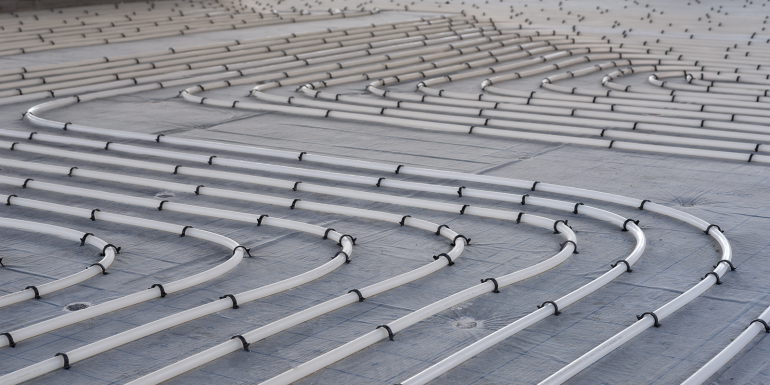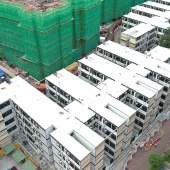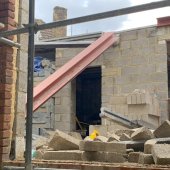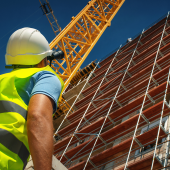Thermally activated building structures

Can thermally activated building structures offer a solution to sustainability and overheating issues in new builds?
With the built environment accounting for 40% of the UK’s carbon footprint, and the Committee on Climate Change (CCC) warning of the dangers of overheating in buildings, a white paper by REHAU Group is highlighting the importance of sustainable heating, ventilation and air conditioning (HVAC) systems.
The white paper identifies issues around overheating, air quality and sustainability in buildings, and emphasises the need to decarbonise new and existing structures to meet the UK’s net-zero emissions targets. Citing UK Green Building Council findings that heating and cooling is responsible for a large proportion of in-use emissions within the built environment, it explores the impact of sustainable HVAC systems.
In a recent report, the CCC warned that failing to adapt the built environment to the changing climate could pose major risks to the health of occupants as a result of overheating. The white paper examines the potential of thermally activated building structure (TABS) technology to resolve this. A means of space heating and cooling, TABS employs a network of water pipes embedded within a building’s concrete structure. The network can either provide cold water to cool the building, or hot water to heat it.
“TABS is growing in popularity because it is economical and efficient, reducing annual energy costs by up to 47% compared with traditional HVAC systems,” says Franz Huelle, Head of Technical at REHAU Building Solutions. “This is because, whether heating or cooling, water flowing at different temperatures influences the temperature of a building’s concrete structure.
“Opting for such a system eliminates the need to regulate temperatures in individual rooms that have specific load requirements. Instead, the pipework makes it possible to use the building’s mass and thermal dynamic behaviour to maintain comfortable conditions, almost like a living organism.”
Heating and cooling properties
Commonly used for larger buildings, TABS systems make use of the large thermal mass of concrete structures, acting as a buffer for varying cooling or heating loads throughout the day. REHAU’s white paper explores the benefits of the technology’s high thermal inertia, use of large surface areas, and its radiative heating and cooling properties. It also examines the potential for TABS to reduce carbon emissions and increase occupier health and comfort.
“When it comes to selecting an appropriate HVAC system, everything always comes down to one fundamental question – does this technology offer a compelling business case? Given the pressures to deliver buildings that meet future sustainability needs, TABS should definitely be considered under these parameters,” Franz says.
“For example, because these systems can continuously expel heat throughout the day, they are well placed to tackle the urgent threat of buildings overheating in the warmer months. This is of particular importance as weather patterns become more extreme, and high-performance insulation becomes the standard in new-build properties.
“Contractors, specifiers and developers may therefore need to engage more specialist assistance to meet these challenges and other longstanding priorities, such as lowering construction and maintenance costs. The ability of TABS to realise these benefits while decarbonising the nation’s building stock explains why building professionals should read this new white paper and explore the technology’s viability.”
Read the white paper at bit.ly/RehauTABS






